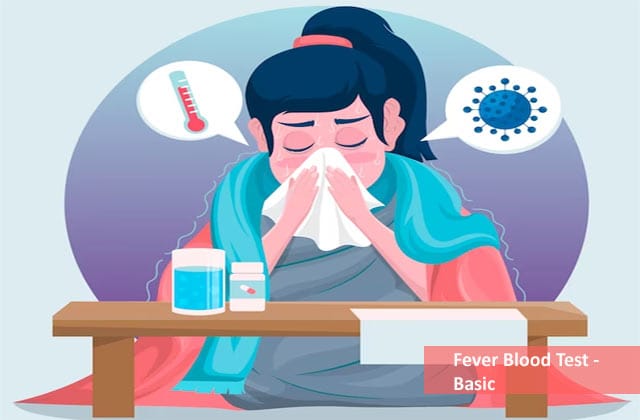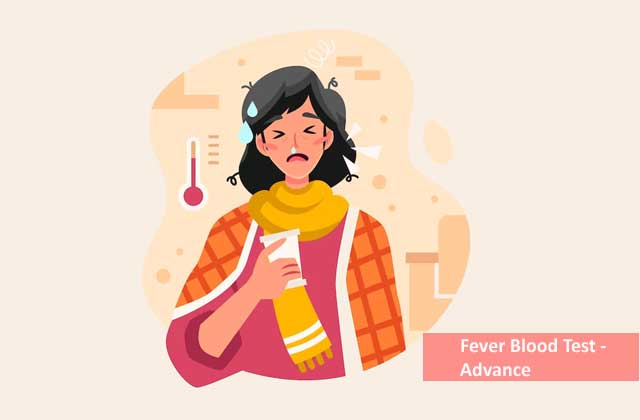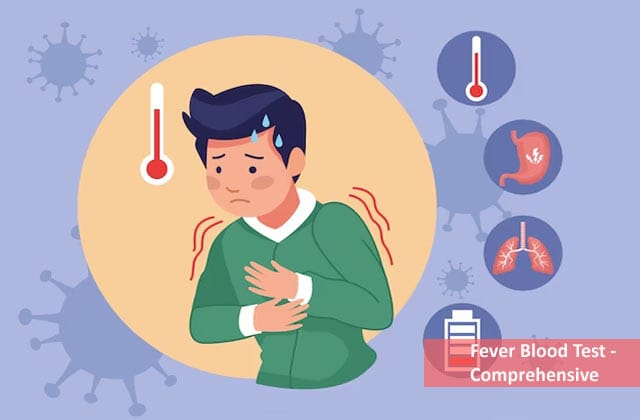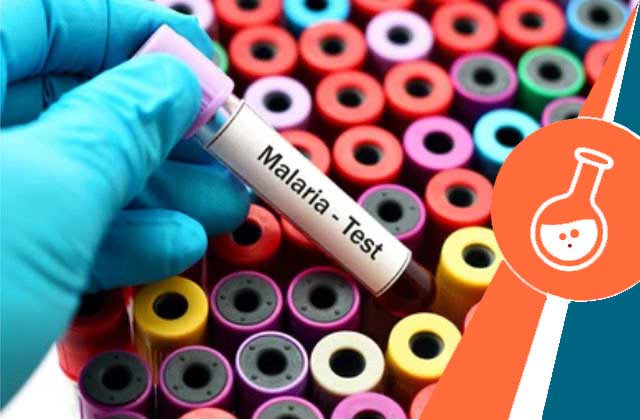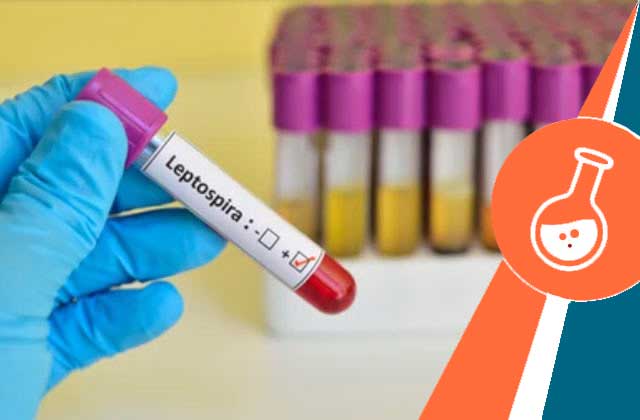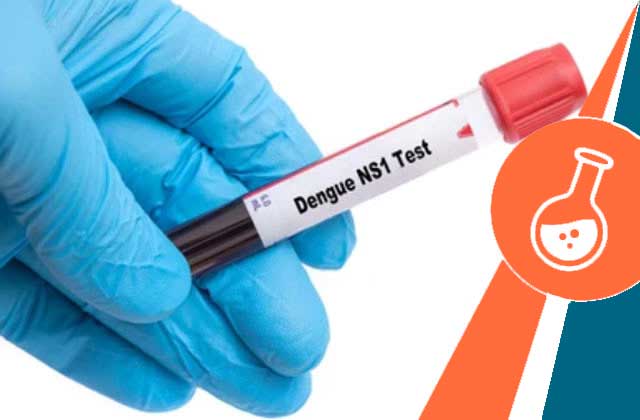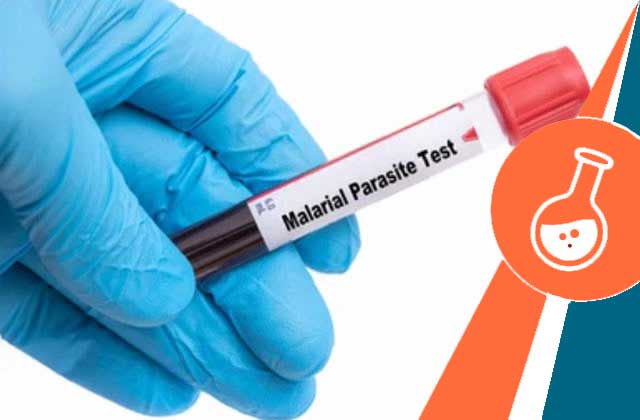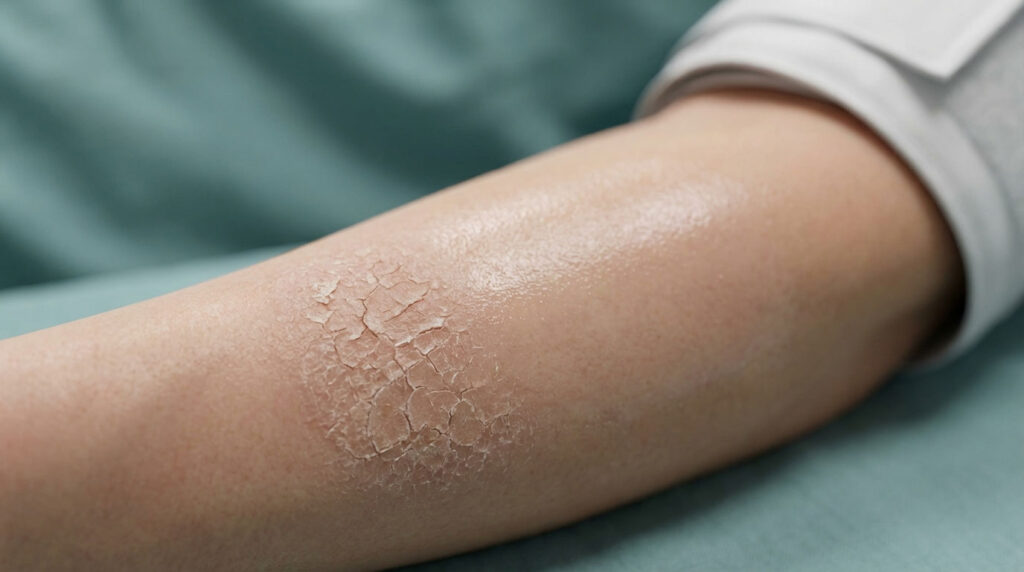Fever Profile Test
Are You Tired of Frequent Fevers?
Are Frequent Fevers Taking a Toll on Your Health? With seasonal changes all year round, it might be expected for you and your family members to have a temperature. In this case, you might be down with a fever. This is when you need to book a fever panel test.
A fever profile test helps detect the presence of certain bacteria in the body that can cause infections. It is important to note that there are certain instances where a fever test is performed. It can be conducted on children, adults, and elderly individuals.
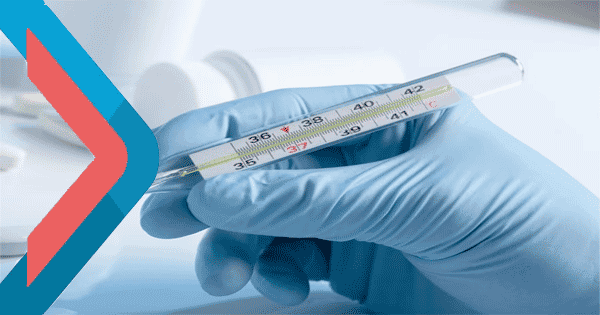
Explore Book Fever Panel Test | 30% Off on Fever Profile Test Prices List & Packages
How To Get This Test

CHOOSE YOUR TESTS

PHLEBOTOMIST VISITS YOUR PLACE

GET YOUR TEST REPORTS
PURPOSE
What Is The Purpose Of Getting A Fever Test?
The purpose of conducting a blood test for fever is to accurately diagnose the underlying causes of persistent fever. A fever profile blood test may be recommended to determine the severity of the fever, assess the type of infection or inflammation present, and help guide appropriate treatment. A fever panel blood test may include a complete blood count, liver function tests, electrolyte panel, and urine analysis
CAUSES
What Are The Causes Of Fever?
Fever is a common symptom that occurs when the body’s temperature increases in response to an infection or illness. Fever or an elevated body temperature might be caused by the following reasons:
- Viral infection
- Bacterial infection
- Heat exhaustion
- Certain inflammatory conditions such as RA — inflammation of the lining of your joints (synovium)
- Cancerous (malignant) tumor
- Certain immunizations, such as diphtheria, tetanus and acellular pertussis (DTaP), pneumococcal or COVID vaccine
SYMPTOMS
What Are The Symptoms Of Fever?
Body temperatures vary slightly from each person and at different times of the day. A temperature can be taken using a simple mouth thermometer (oral temperature). If it is 100 F (37.8 C) or higher, then it is generally considered a fever.
Here are some common fever symptoms that you should look out for:
- Chills: A sudden feeling of cold accompanied by shivering is a common symptom of fever.
- Headache: As the body temperature rises, it can cause a headache.
- Muscle aches: A fever can cause muscle aches and weakness.
- Fatigue: Feeling tired and weak is a common symptom of fever.
- Sweating: A fever can cause excessive sweating.
TESTING TYPES
What Are Different Fever Testing Types
There are various types of blood tests for fever that can be utilized to diagnose and monitor this condition. Some of the specific tests for fever include
- CBC (Complete Blood Count) Test – A complete blood count test is used to look at overall health and find a wide range of underlying health concerns.
- C Reactive Protein (CRP) Test – The test measures the level of c-reactive protein (CRP) in a sample of your blood. High levels of CRP may indicate an underlying issue causing your fever.
- Dengue Ns1 Antigen Test – NS1 test is used to detect the non-structural protein NS1 of the dengue virus. This protein is secreted into the blood directly during dengue infection.
DIAGNOSIS
Fever Blood Testing Diagnosis
Based on your diagnostic test reports, you can understand if the fever you are experiencing is due to an underlying issue or is seasonal flu. Based on the results, the doctors will guide you for further treatment. It’s important to note that fever blood testing alone cannot provide a definitive diagnosis. The test results are used in conjunction with other diagnostic tools, such as a physical exam, medical history, and imaging tests, to make an accurate diagnosis.
INTERPRETING RESULTS
How To Interpret Fever Blood Testing Results
- CBC (Complete Blood Count) Test – CBC Levels combine multiple different factors into play. Thus it is best to consult a doctor for the appropriate interpretation of the results.
- CRP Test (C-Reactive Protein) – CRP levels above 10 mg/l suggest there is inflammation in the body.
- Dengue Ns1 Antigen Test – Ns1 levels above 1.1 indicates the presence of dengue.
PRICE
Fever Profile Test Prices
Are you curious about the fever tests cost in India? The fever profile test price can fluctuate within a range of Rs. 399 to Rs. 1499, depending on the specific tests included in the Fever Test Package. To gain a more detailed insight into the individual charges associated with each test within the package, please refer to the table provided below.
Please note that the prices mentioned represent average rates across various diagnostic centers, and the fever panel test price may vary based on your location.
However, here’s the exciting part ‘ HealthcareOnTime is committed to making healthcare accessible for everyone. We provide valuable services, including affordable fever testing, in over 4500+ pincodes nationwide. Your health and well-being are our top priority, and we are dedicated to ensuring that essential health assessments are easily accessible to all.
Fever Profile Blood Test | Price (INR) |
Rs. 156-300 | |
Rs. 133-429 | |
Rs. 400-1427 |
By choosing HealthcareOnTime at-home lab testing facilities, you can get affordable package costing for your Thyrocare fever profile tests. We offer 3 packages, a Basic package that includes 28 parameters, an Extended package that covers 30 parameters, and an Advanced package that covers 33 parameters. You can also book a Thyrocare fever profile test at home.
Fever Test Packages | Parameters Covered | Price (INR) |
28 parameters | Rs. 780 | |
30 parameters | Rs. 1200 | |
33 parameters | Rs. 1600 |
PREVENTION
How To Prevent Fever At Home
Limiting your exposure to infectious agents is one of the most effective ways of preventing a fever. Here are some basic tips that can help you to achieve that:
- Wash both your hands properly with soap and water. Do this especially before eating, after using the toilet, and after being in a crowded gathering.
- Cover both the front and back of each hand with soap and rinse thoroughly under warm water.
- Carry a hand sanitizer or antibacterial wipes with you. They can come in handy when you don’t have access to soap and water, especially during traveling.
- Avoid touching your nose, mouth, or eyes. Doing so prevents viruses and bacteria from entering your body and causing infection.
- Cover your mouth and nose properly when you cough or sneeze.
FAQs Around Pregnancy Tests
What is a widal blood test?
A Widal Blood Test is a serological test used to diagnose typhoid fever, a sort of bacterial infection. This test is used to detect the presence of antibodies against the bacteria that cause typhoid fever in the patient’s blood. It is commonly used in areas where the disease is endemic, such as developing countries.
Is it worth testing urine in fever?
Fever is a common symptom in many infections and diseases, and testing urine may provide valuable information for diagnosis and management. When there is an infection in the body, the immune system produces white blood cells that help fight the infection.
Which is the most dangerous fever among all and why?
It’s difficult to pinpoint the most dangerous fever among all, as different types of fever can lead to serious health complications. However, some fevers are more concerning than others, such as high-grade fevers (above 103??F) that persist for an extended period.
Does a viral fever decrease platelets?
To determine if a viral fever affects platelet levels, doctors may recommend a fever profile test or a fever blood test. This typically includes a complete blood count and other blood parameters, which may vary depending on the lab.
When should a patient see the doctor for a fever?
If you have a fever, it’s important to know when to see a doctor. A fever investigation test may be needed if you have a persistent fever. Seek medical attention immediately if you have severe symptoms. Blood tests for fever in adults are essential for those with weakened immune systems or who have traveled recently.
Why does our mouth turn bitter when we are hit with a fever?
Fever can cause our mouth to taste bitter due to the release of inflammatory mediators that stimulate taste receptors. The bitter taste receptors in our mouth respond to these mediators by sending a signal to the brain, which interprets it as a bitter taste. Some people also experience a metallic taste or a loss of taste during a fever.
How do you reset the taste buds after the fever is gone?
Fever can leave your taste buds temporarily impaired. To restore your sense of taste, try eating foods with different flavors and textures. Some good options include sour or tangy foods, spicy dishes, and crunchy snacks. Drinking plenty of water can also help flush out any lingering aftertaste.
Building a Legacy of Healthy Smiles
Hear from Our Valued Clients
Service was prompt, sample collected on time. And also got the report quickly.
HealthcareOnTime Blogs
Stay Informed: Latest Insights on Health, Conditions, Tests, and Treatments VIEW ALL

